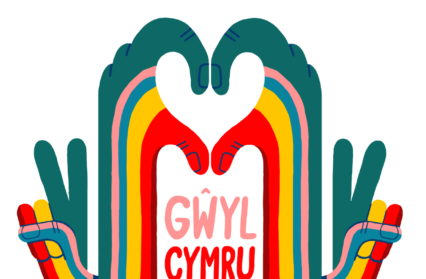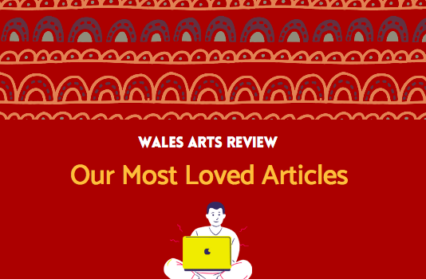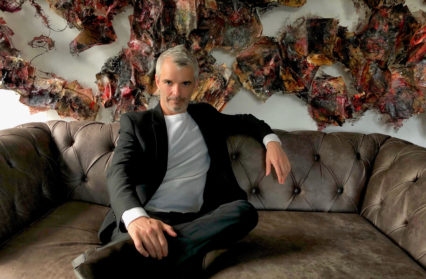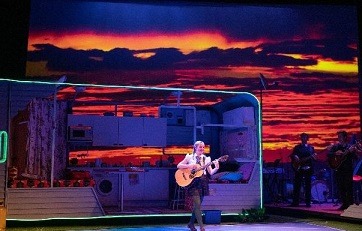Gareth Kent reviews Tudur Owen’s anecdotal tale of ‘Britain’s Worst Zoo’ on the Welsh island of Anglesey in the radio comedy-drama, Zoo.
The Welsh island of Anglesey is likely not the first place you would imagine encountering amorous spider monkeys, a doleful lion, a Eurasian eagle owl, nor a wandering wallaby. Yet, as Tudur Owen details in the radio comedy-drama, Zoo, during the early 1980s, you may have encountered all of these animals (and a few more) in a particularly rubbish zoo for the admission price of £1. Zoo is a two-part BBC Radio 4 comedy that sees Welsh comedian Owen provide an anecdotal account of how his family unwittingly came to own what the News of the World would dub as ‘the worst zoo in Britain’.
Like most rural locales, Anglesey is short on prestige and modern development, and has inadvertently been omitted from official maps numerous times. It is not too surprising, then, when Owen recollects that, when he was a child, the de facto A-lister of Anglesey was a man called Earnest Lloyd, whose lucky break came after ‘his heart had all packed up,’ putting him on the waiting list for a ‘pioneering heart transplant’. In this way, Owen presents Anglesey, albeit lovingly, as something of an eccentric anomaly, as is echoed in both Zoo and his previous radio comedy, Where on Earth is Anglesey?
The first episode of Zoo focuses on the Owen family, Tudur’s relationship with his brother, Dewi, and, most markedly, their parent’s marriage. Nonetheless, Owen wastes no time and quickly explains how this unassuming household from a remote region of Wales was transformed into a zoo. The titular Zoo, Owen tells us, is but one of his father’s many attempts at ‘diversification’. Perhaps this is not too surprising considering how amongst such ventures was an ‘early attempt at glamping before that word had been invented,’ though this is a sole incidental example. Regardless, news soon spreads of his father’s penchant for impromptu business ventures, which piques the interest of a wholly reputable Irish “businessman” from Clonmel selling animals on the cheap, with no regulations, nor licensing involved.
Of course, Owen’s Zoo is more than just a mere cursory recollection. While the series hinges on comic whimsy and the sheer farcicality of its premise, it never deters from the reality of the less-than-idyllic living arrangements forced upon the animals. Thankfully, rather than make a mockery of animal rights, Owen treats the situation with as much seriousness as comic zeal, generally opting to direct the jokes at his own expense.
Despite its title, however, Zoo is primarily concerned with familial relations as is demonstrated through its primary conflict. With the constant succession of outrageous schemes stretching her to breaking point, Tudur’s mother leaves the household after her husband proclaims he is opening a zoo. Thus there is a clear narrative thread concerning family ties, unfulfilled ambitions, and an absolute lack of opportunities in the Welsh countryside. Tudur also reflects upon this regarding his relationship with his brother, Dewi, who reacts with scorn towards receiving a nickname denoting an archetypical farmer – ‘the joskin’. Of course, while Dewi is one of his best friends, Owen remarks that this was because, in 1980, there was mutual hatred between them. ‘I wanted him to die’, Tudur claims when deliberating on an incident involving a sledgehammer hitting him after it was, allegedly, blown by a gust of wind (while inside a barn, no less).
The Anglesey Zoo is quickly shut down in the second episode, however, after the arrival of an RSPCA inspector responding to a licensing complaint. The inspector orders the Owen family to find new homes for the animals, and this consequently makes up the majority of this episode’s escapades. Not only does the episode feature an exhibitionist spider-monkey demanding an audience, but it also includes the most dramatic scene in the series – a mild-octane chase between man and wallaby. The chase is, quite possibly, the most ludicrous incident in either episode, and this undoubtedly says a great deal. The episode concludes, however, with the two brothers making a pact. Realising that the zoo is the cause of their mother’s departure, Tudur and Dewi surmise that allowing the wallaby to escape will, likewise, ensure her homecoming. It is a wonderfully tender conclusion to Zoo, one which showcases the loving affection two sons have for their mother.
Ultimately, Zoo remains an entertaining little comic-romp throughout. It revels in the peculiar characteristics of our every day and embraces the strange potentialities we may encounter in even the most unassuming of places. Owen previously made it his mission to ‘rejoice in and roast the island he calls home’. In Zoo, Owen has seemingly opted for a similar approach by directing the lens towards his home life instead, resulting in an amusing, reflective celebration of both family and place.
Tudur Owen’s Zoo is available now at BBC Sounds
Gareth Kent is a regular contributor to Wales Arts Review.


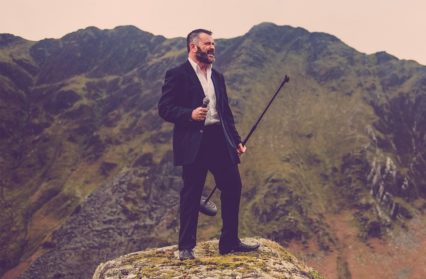
 Enjoyed this article? Support our writers directly by buying them a coffee and clicking this link.
Enjoyed this article? Support our writers directly by buying them a coffee and clicking this link.